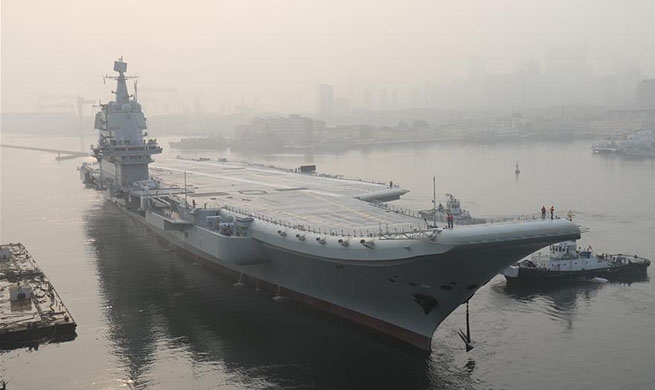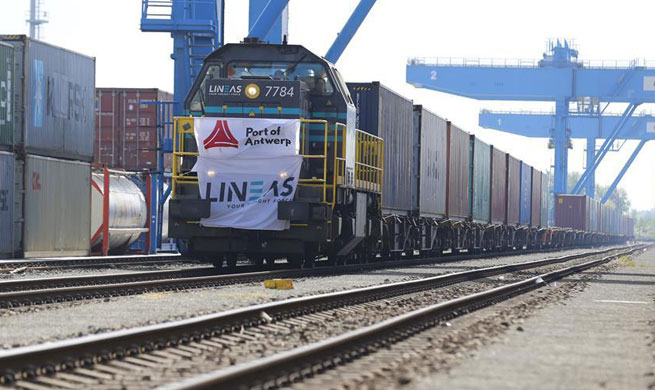ALGIERS, May 13 (Xinhua) -- The withdrawal of the United States from the Iranian nuclear deal would cause serious consequences and high tension in the Middle East which may develop into an unprecedented global crisis, Algerian analysts said.
In an interview with Xinhua, Zohir Bouamama, a professor with the Political Science and International Relations at University of Algiers, said that U.S. withdrawal from the nuclear deal "would possibly spark direct military confrontation between Iran and Israel, regarding the key role played by Israeli prime minister in pushing towards the withdrawal."
Bouamama assumed that the U.S. President Donald Trump "seems not aware of the seriousness of the repercussions of his decision, which could drag the whole region to an armed confrontation, mostly as the new U.S. Secretary of State stated that the solution for thwarting Iran from having a nuclear bomb is the destruction of the Iranian nuclear program as a whole."
He considered that such a decision "would also affect Washington's relationship with its European allies who are still supporting the nuclear deal with Iran; and would also deepen the differences with Moscow and Beijing."
Bouamama said that the withdrawal from the nuclear agreement would also lead to consuming larger quantities of energy due to potential direct military confrontations in the air, and this situation would likely to create more instability of oil prices in global markets.
Mustafa Saidj, an expert with the International Relations, said that the U.S. president's decision was largely expected since his election campaign when he considered the Iranian nuclear agreement as one of the worst ever agreements that his country has signed.
"I believe that the U.S. foreign policy towards the Middle East in particular is dictated by the Israeli Zionist lobby, at a time when the Netanyahu administration believes that it possesses intelligence leaks that Iran has the capabilities and is working to develop a nuclear bomb," said Saidj.
Saidj indicated that "the U.S. military industrial complex is also determining the compass of Trump's management of the Iranian nuclear deal in this regard."
Experts assumed that the U.S. military industry tends to maintain the Iranian nuclear program as a bug to push each of the Gulf countries, led by Saudi Arabia, to keep their military spending escalating, noting that 1,739 billion U.S. dollars were spent globally in arm deals in 2017, and the figure is expected to rise in 2018.
Saidj noted that there is a need for the European countries to keep the nuclear agreement in force because it serves the interests of European companies, especially French and German.
"We are talking here about the a deal worth 17 billion dollars for the European Airbus industry in Iran, adding the promising Iranian automobile market that offers lucrative opportunities for French and German car industry," added Saidj.????

















